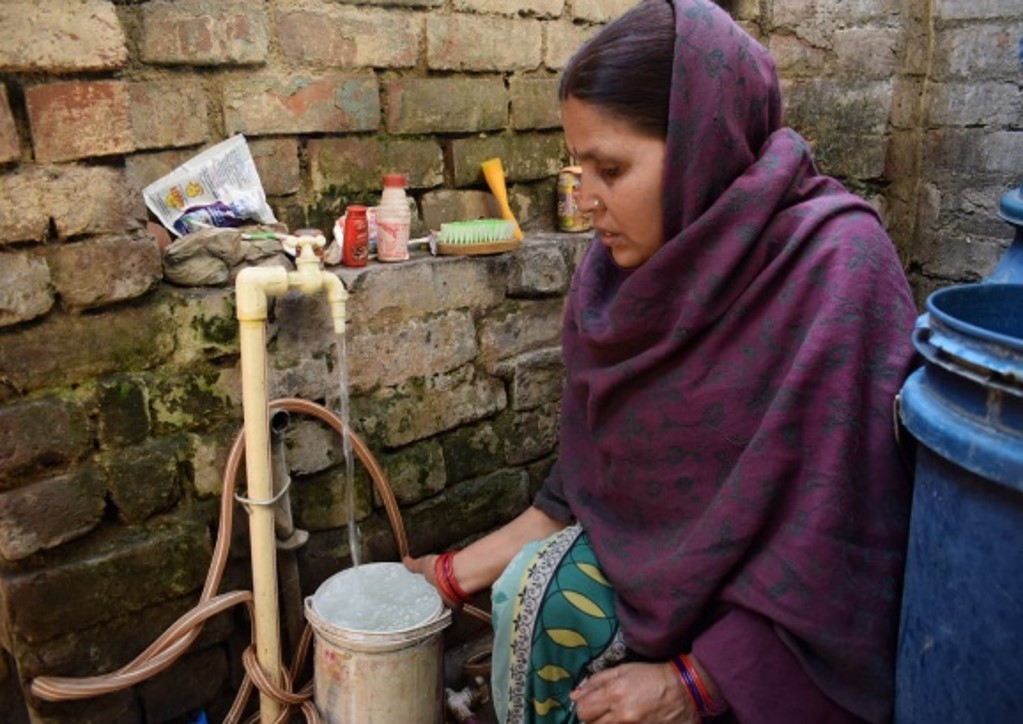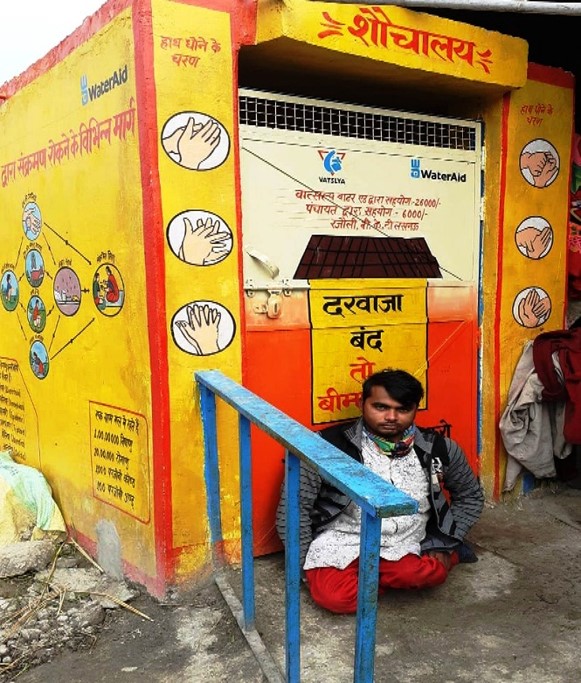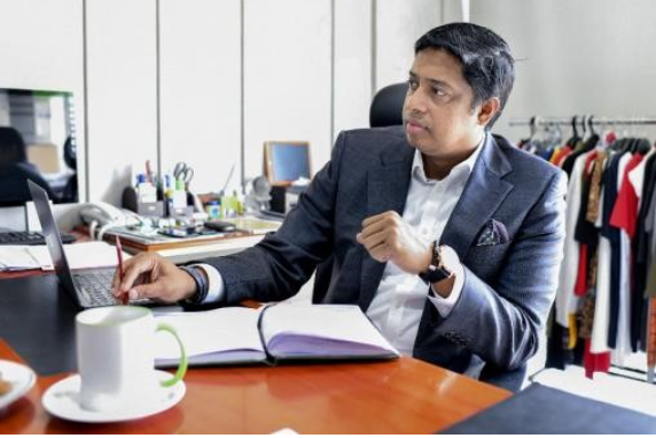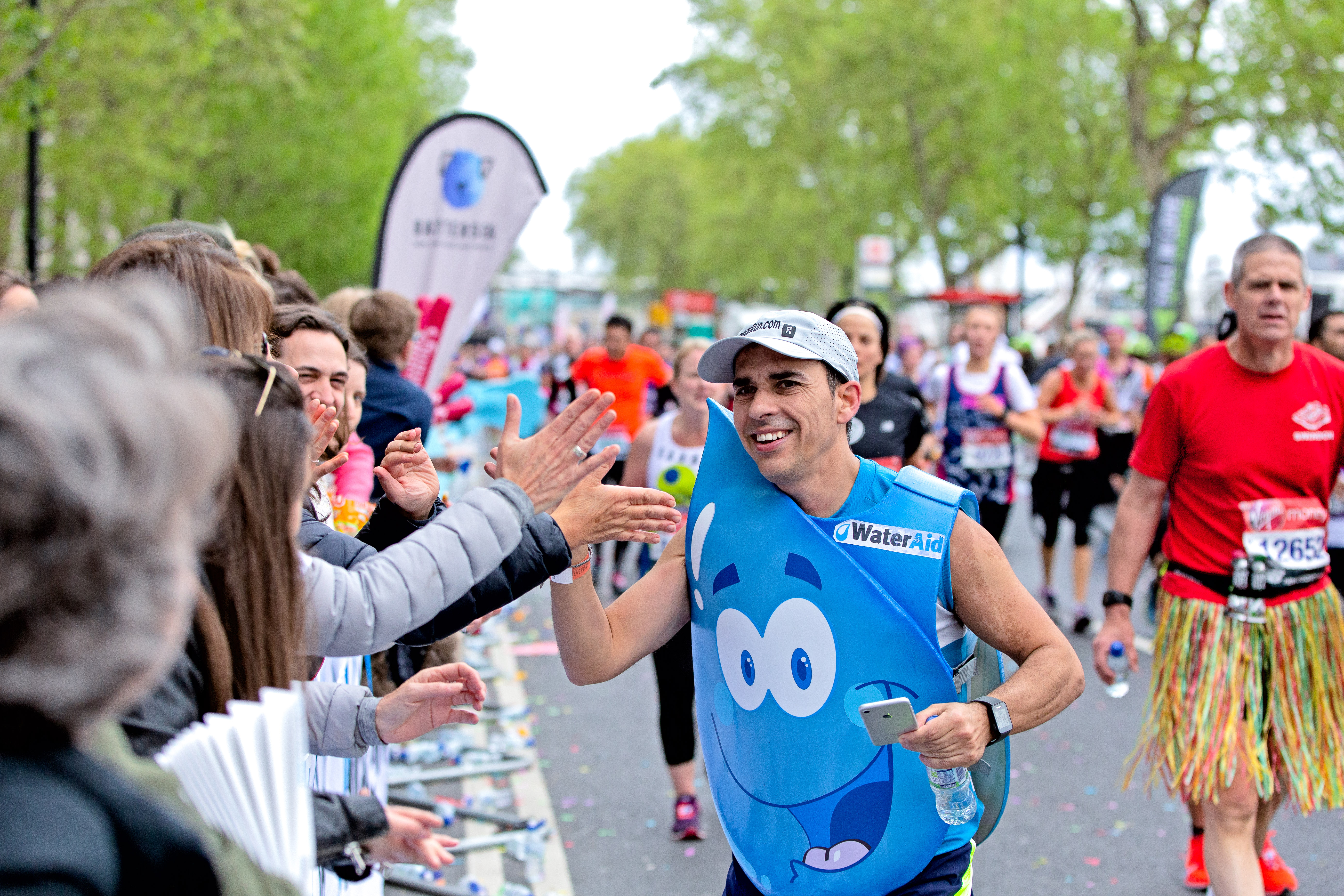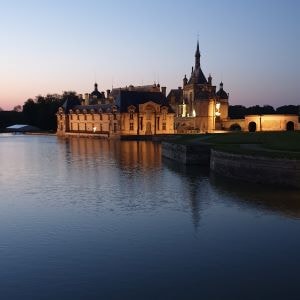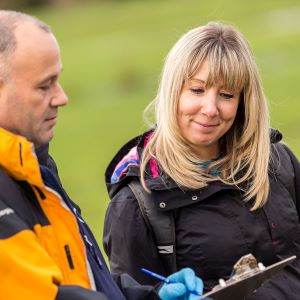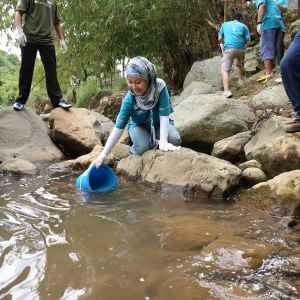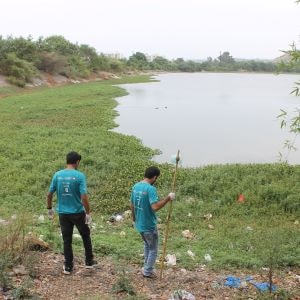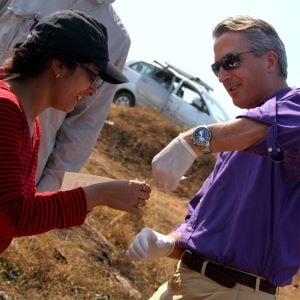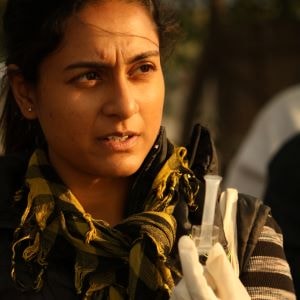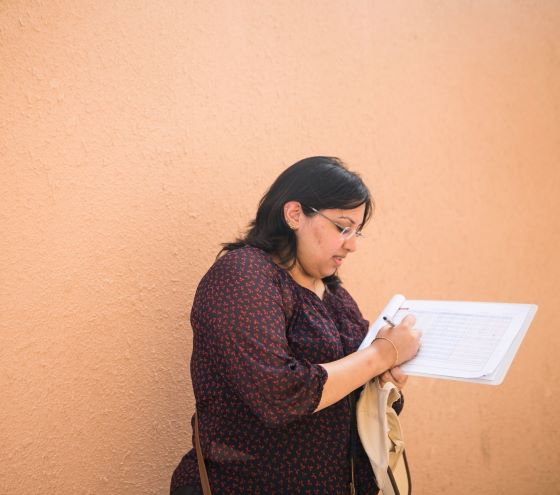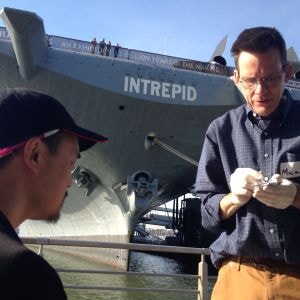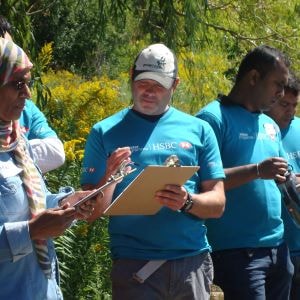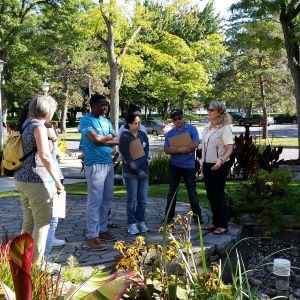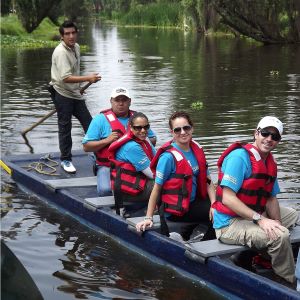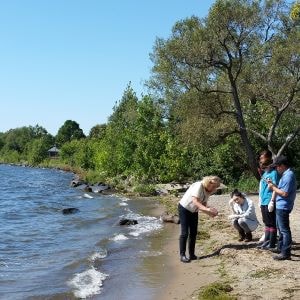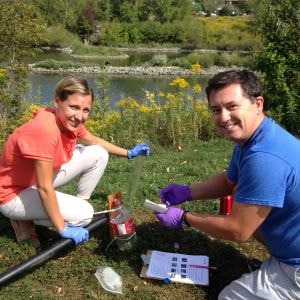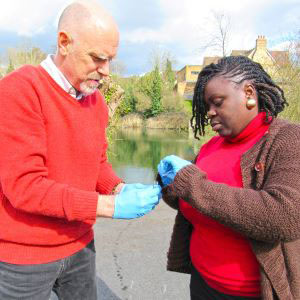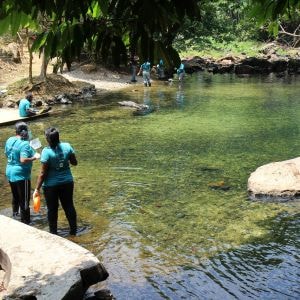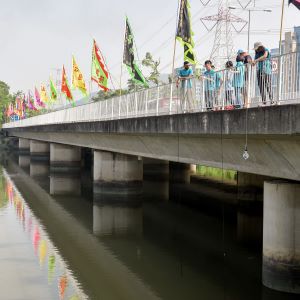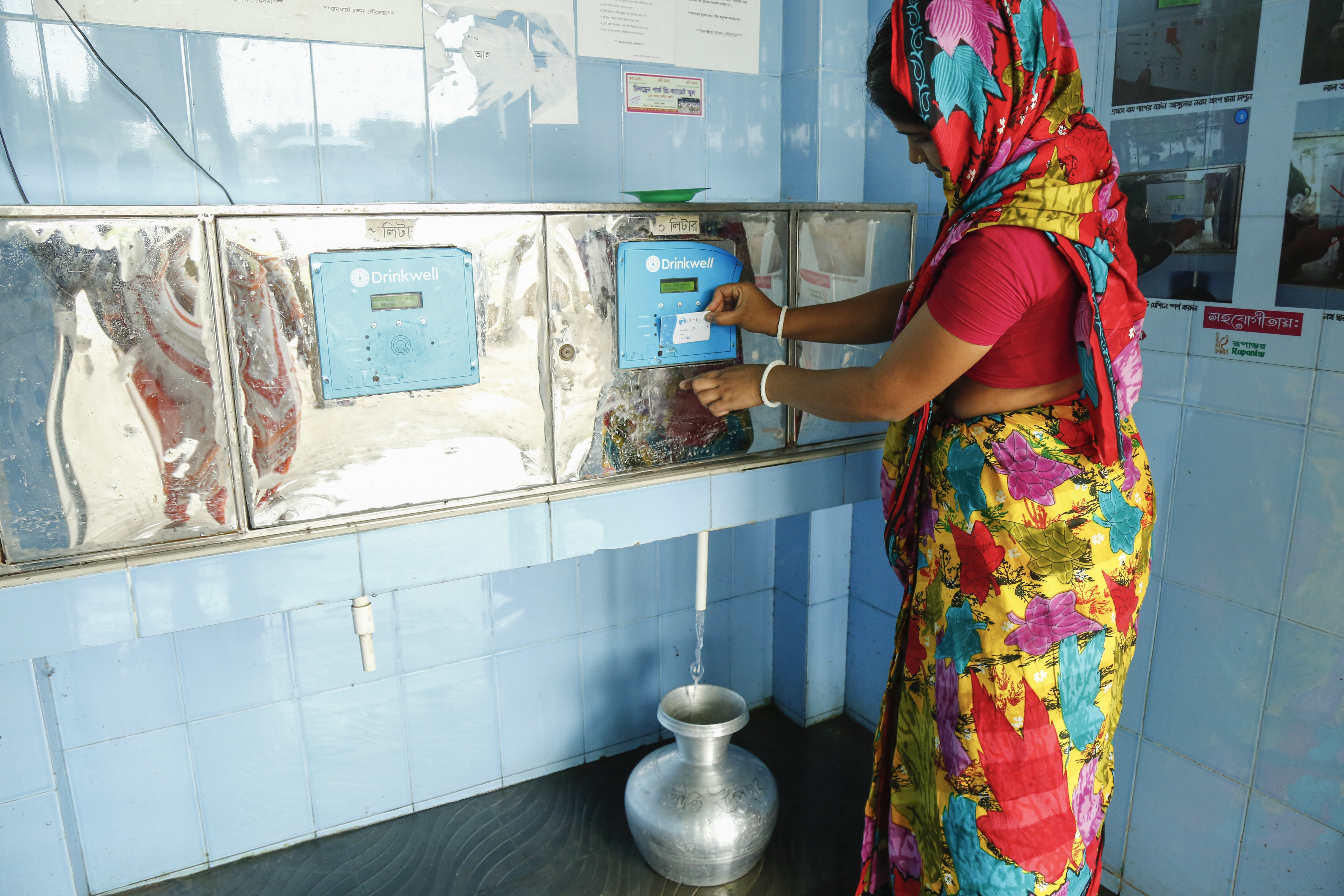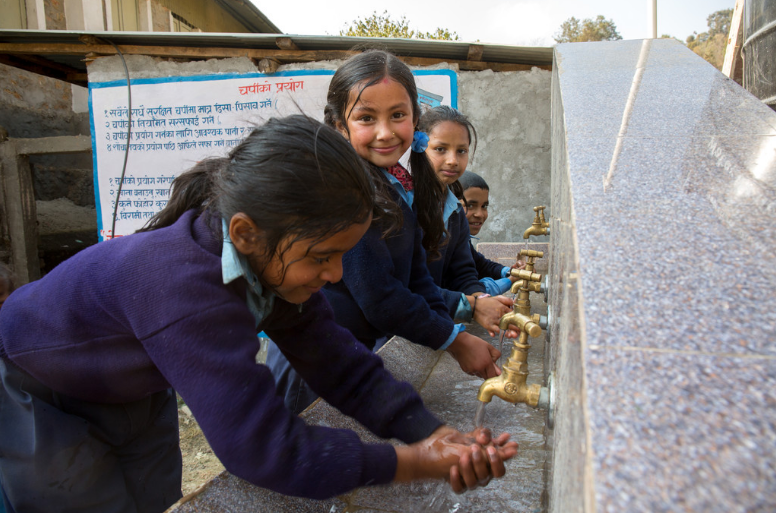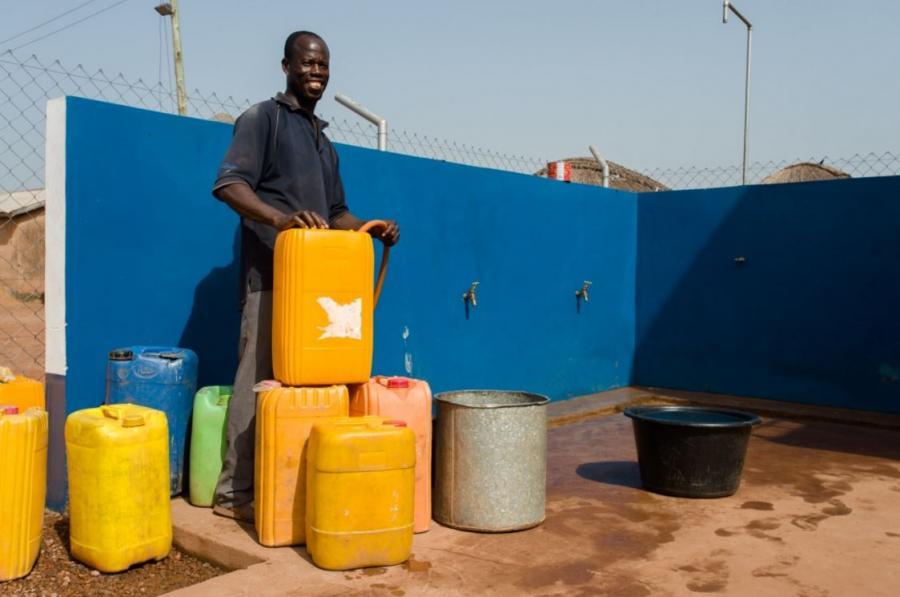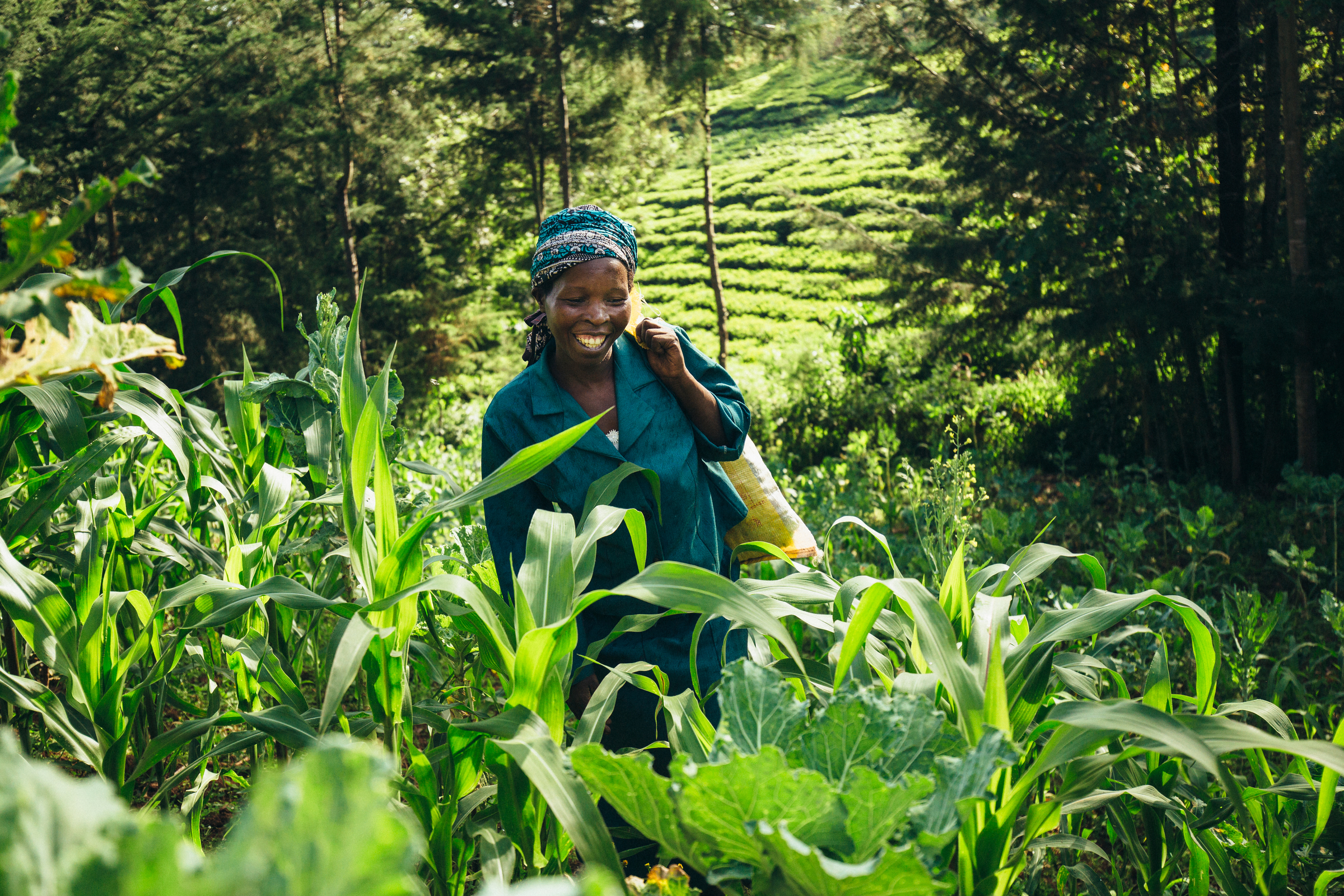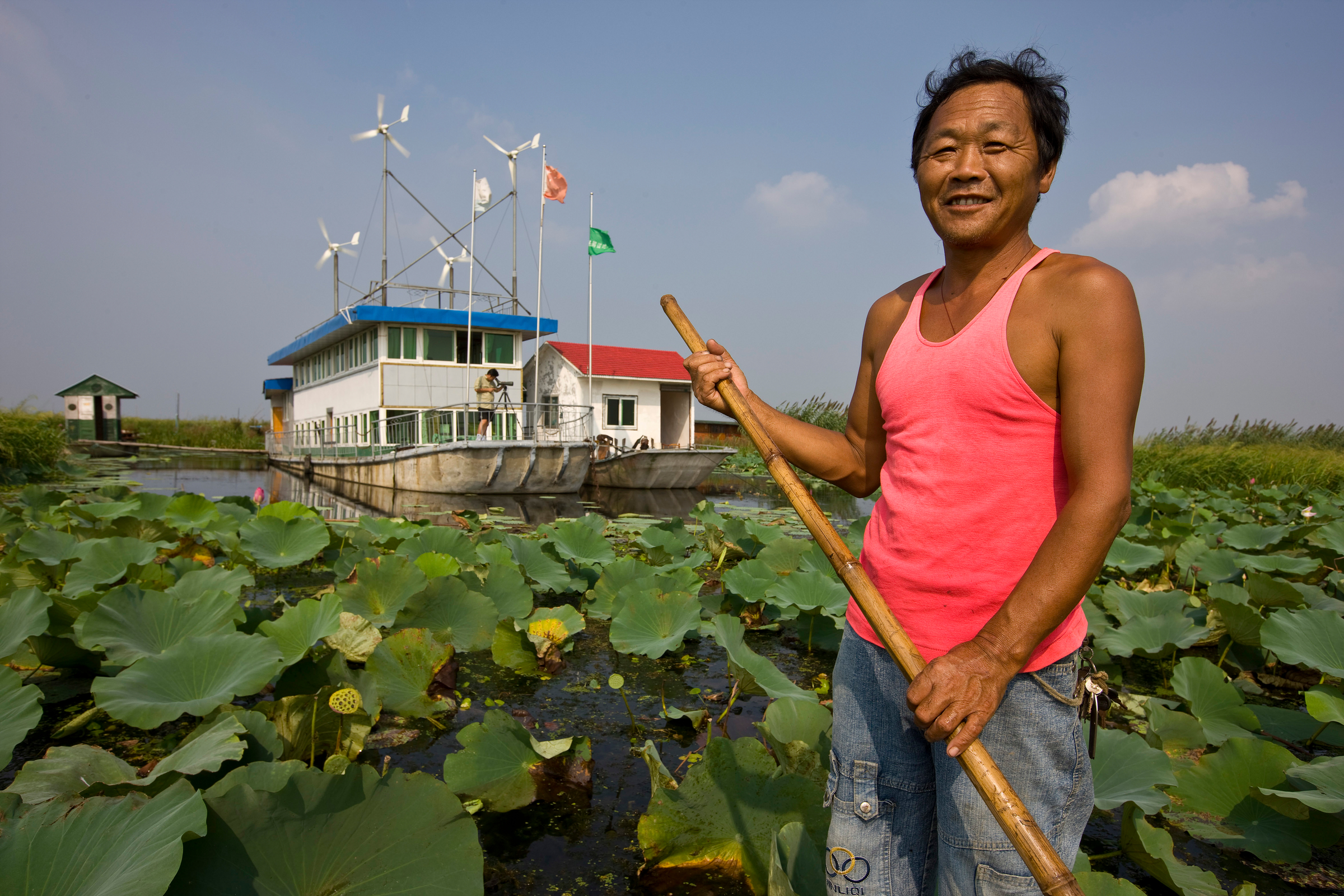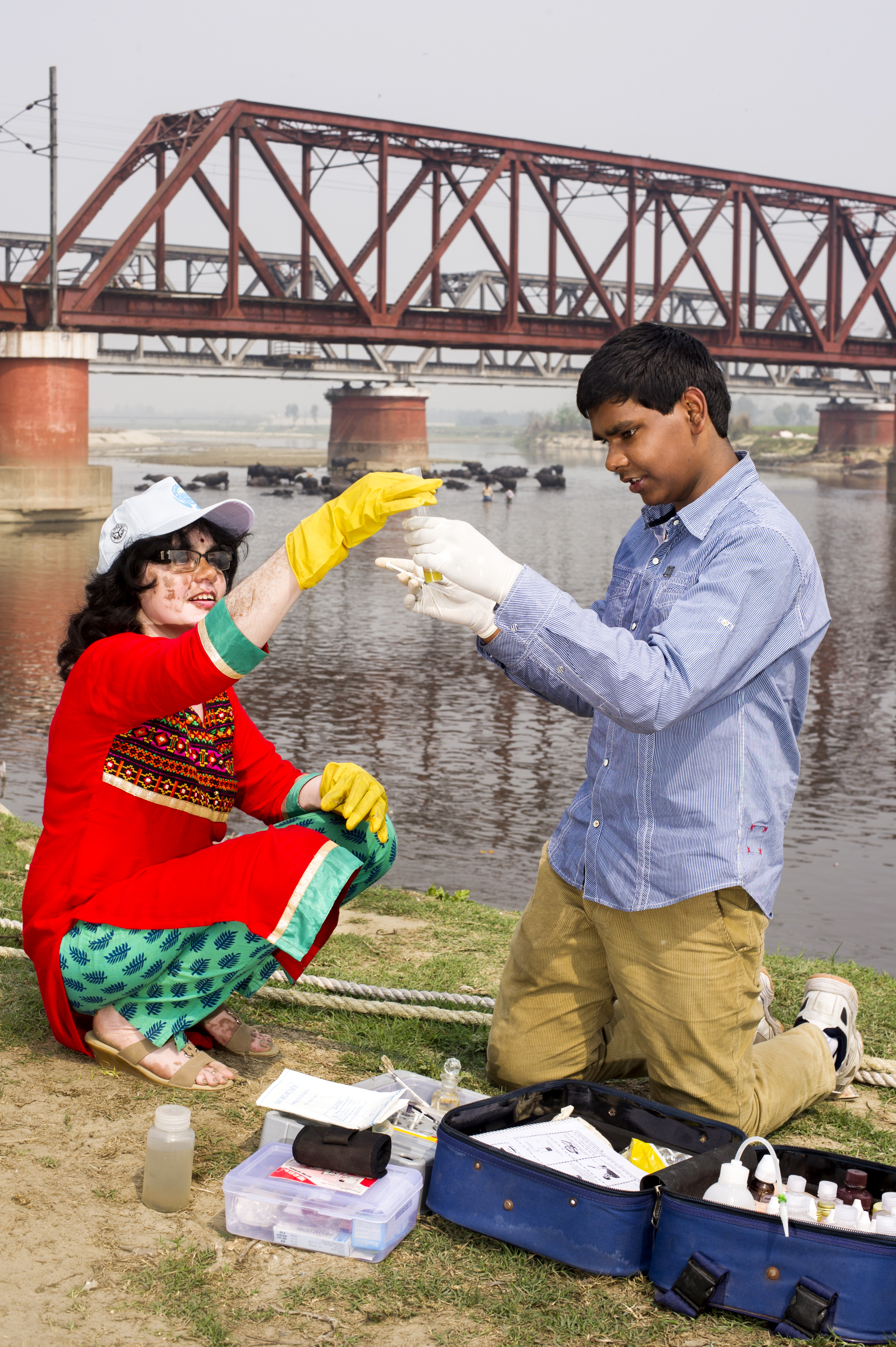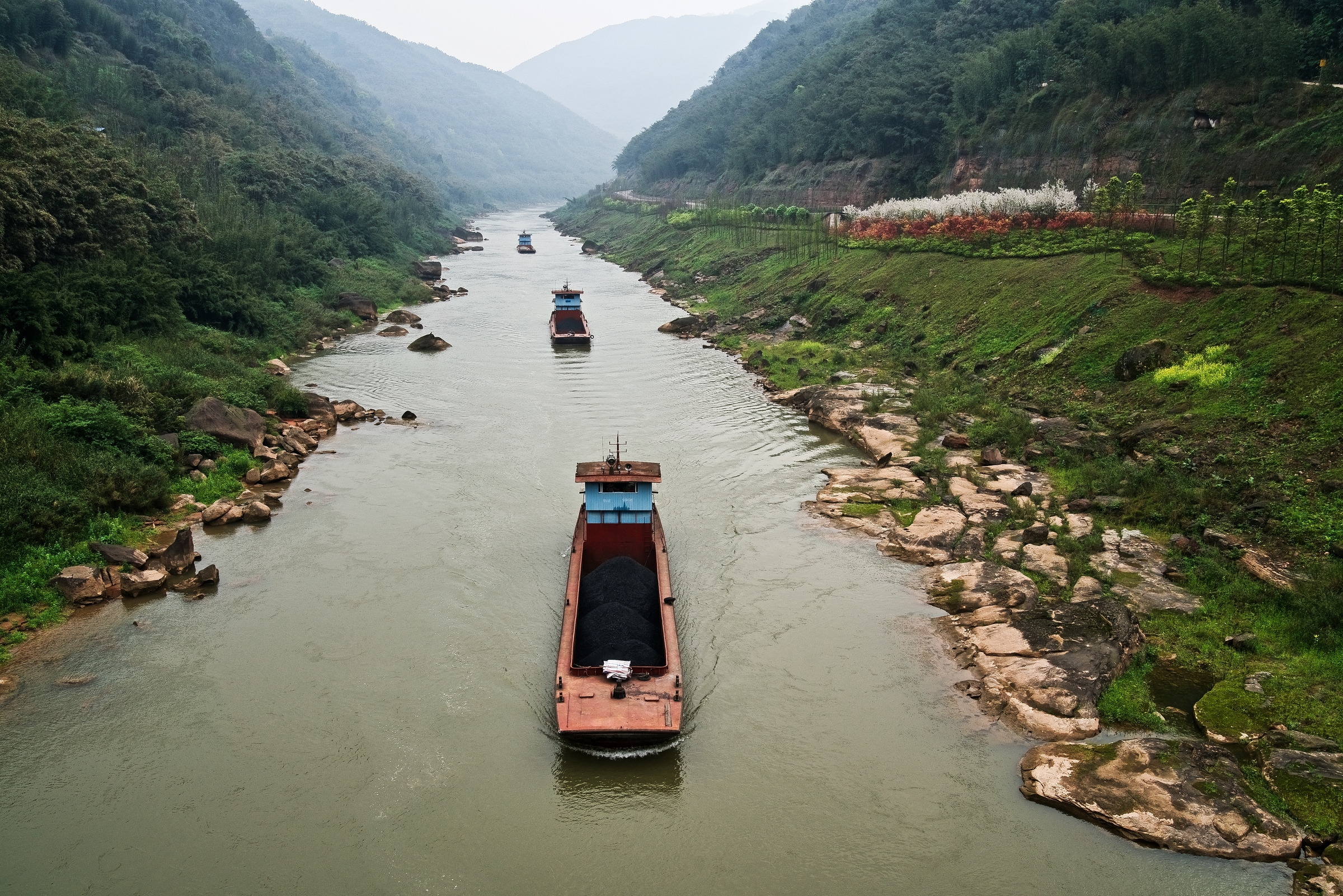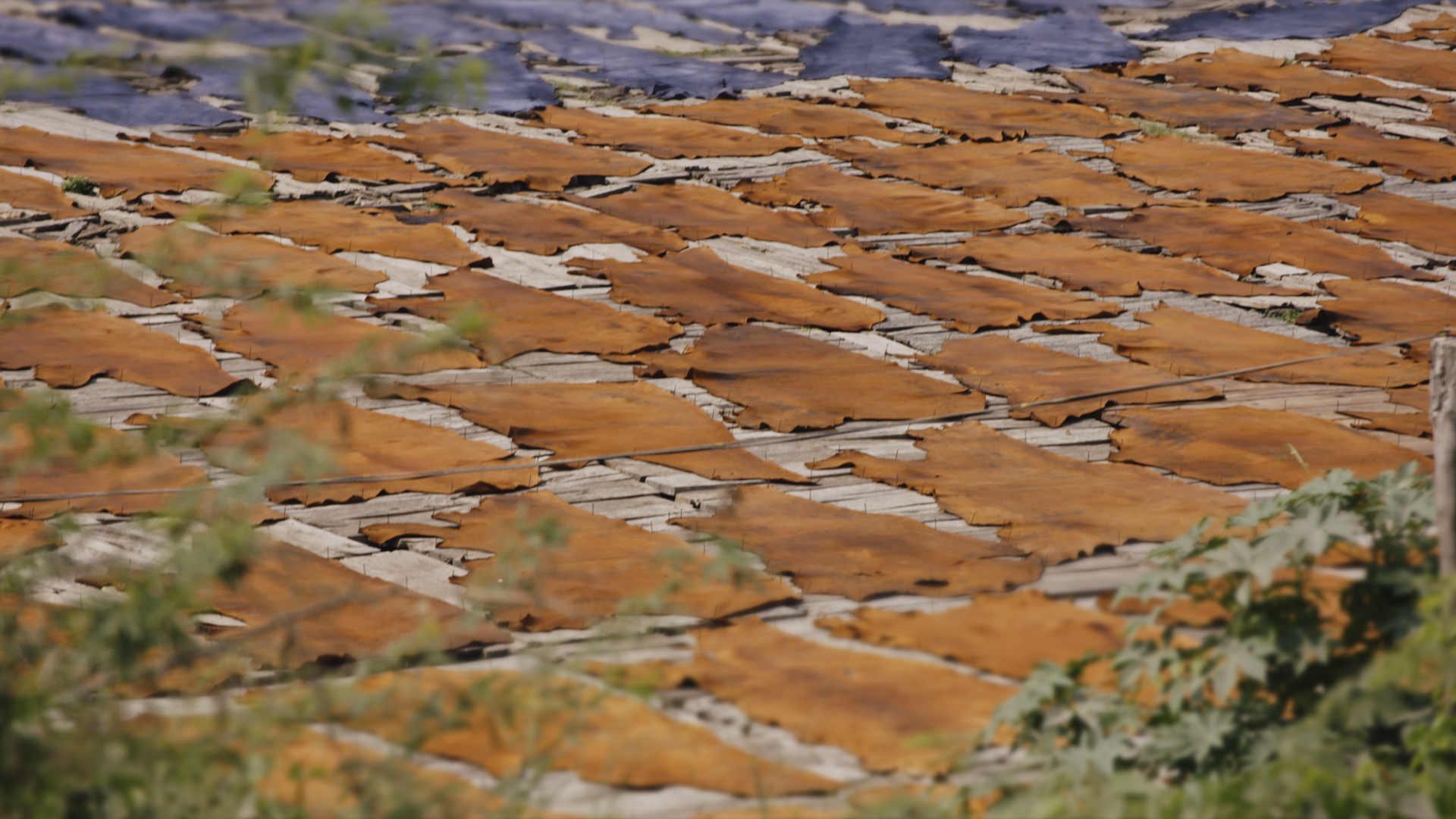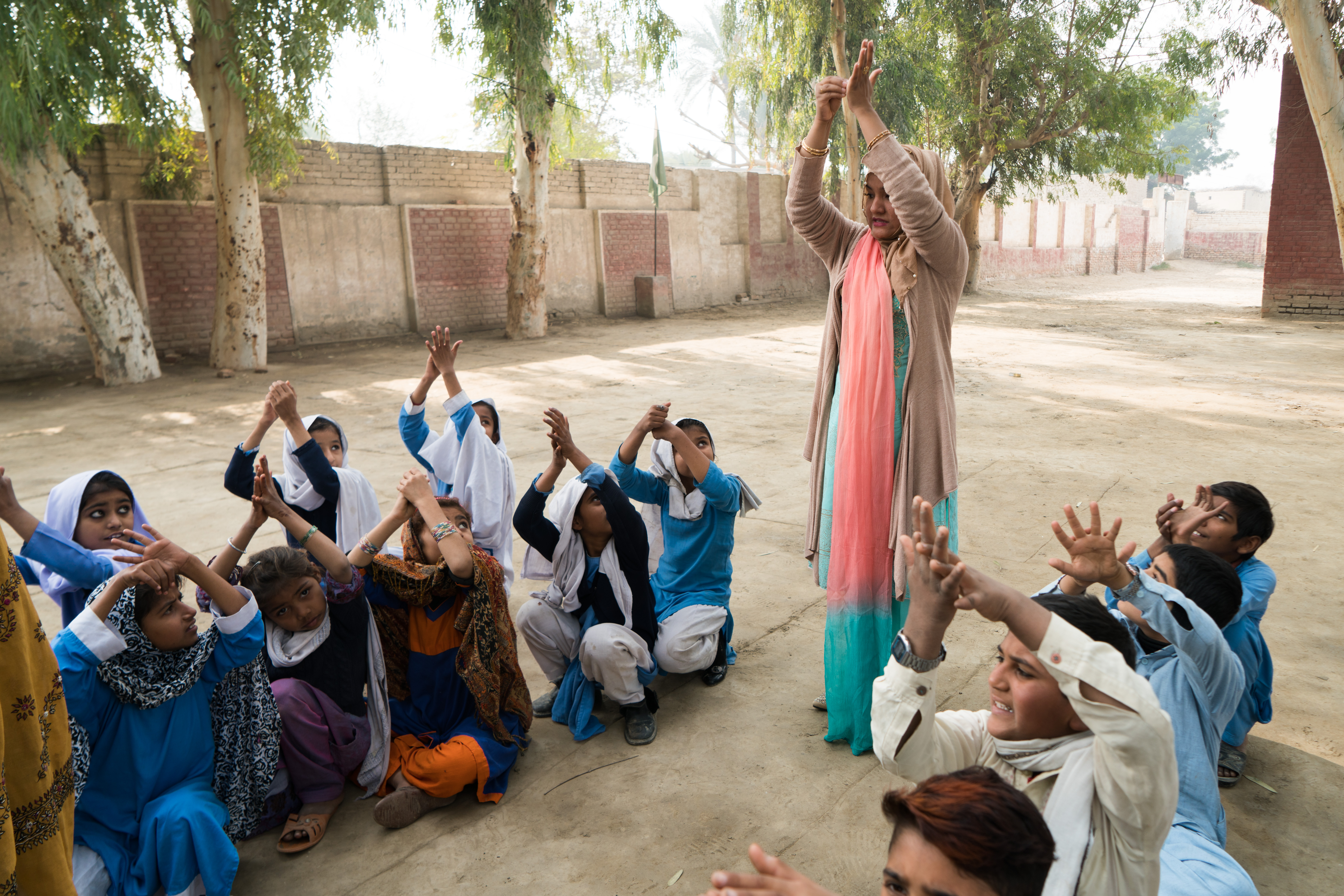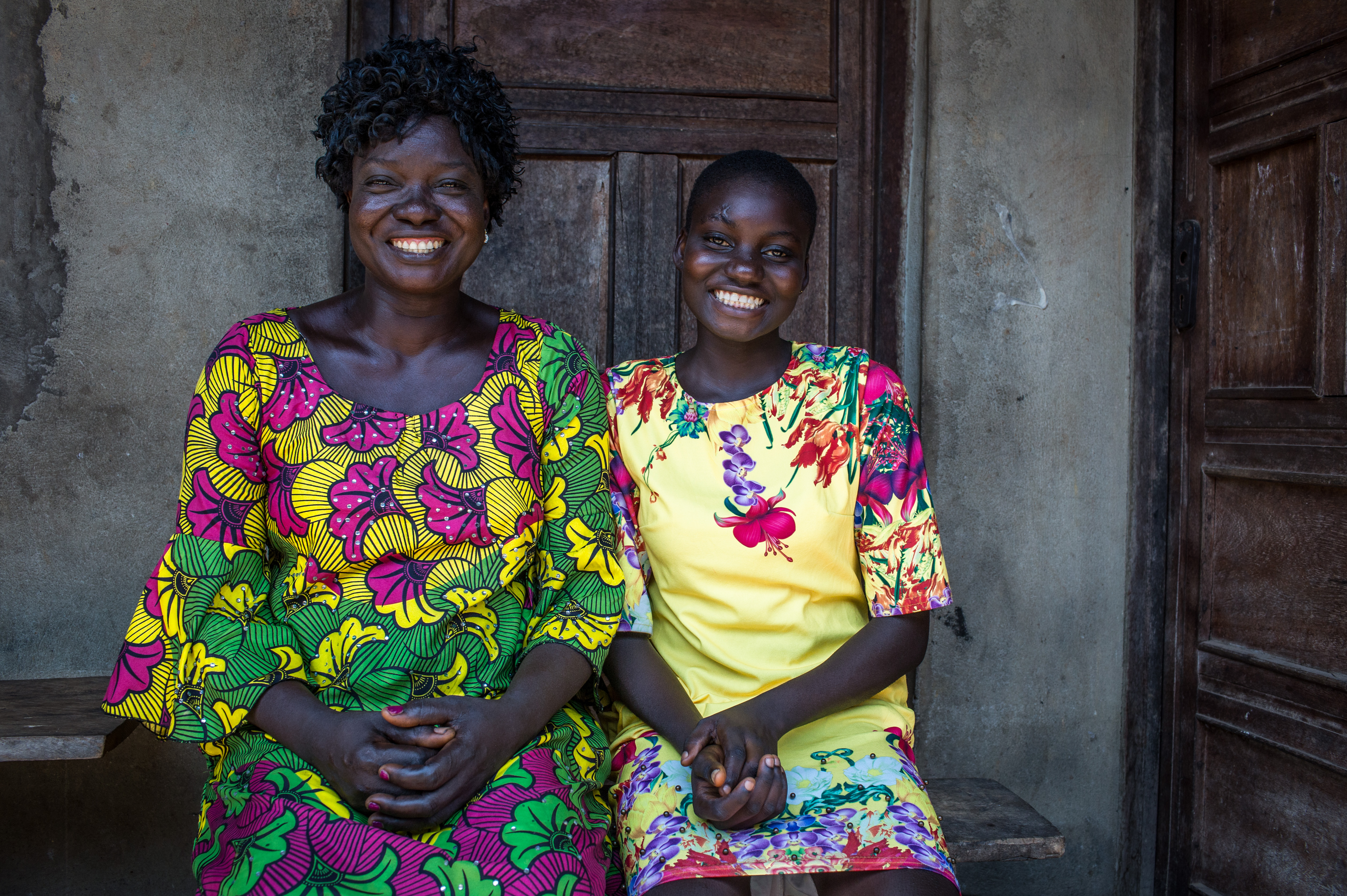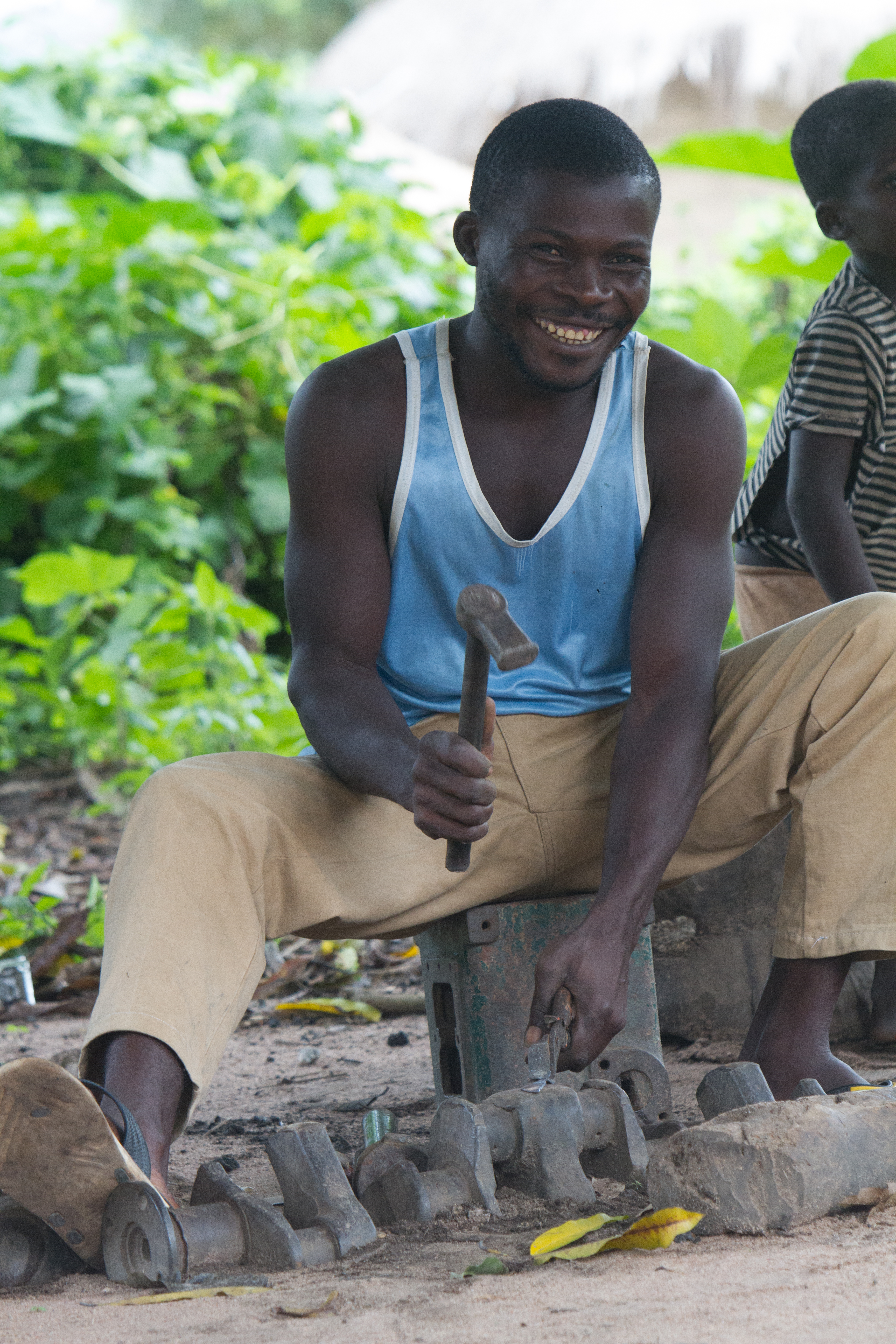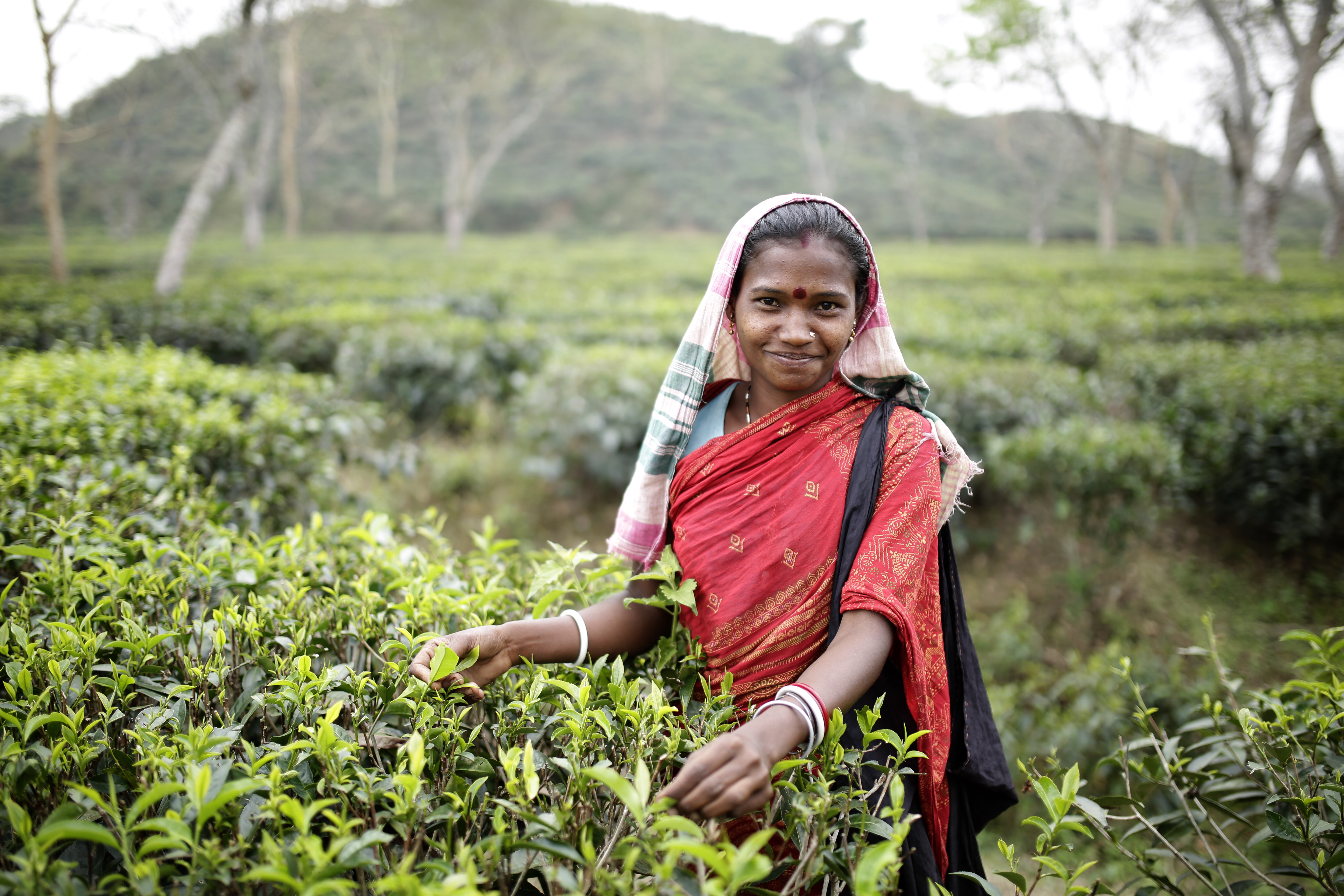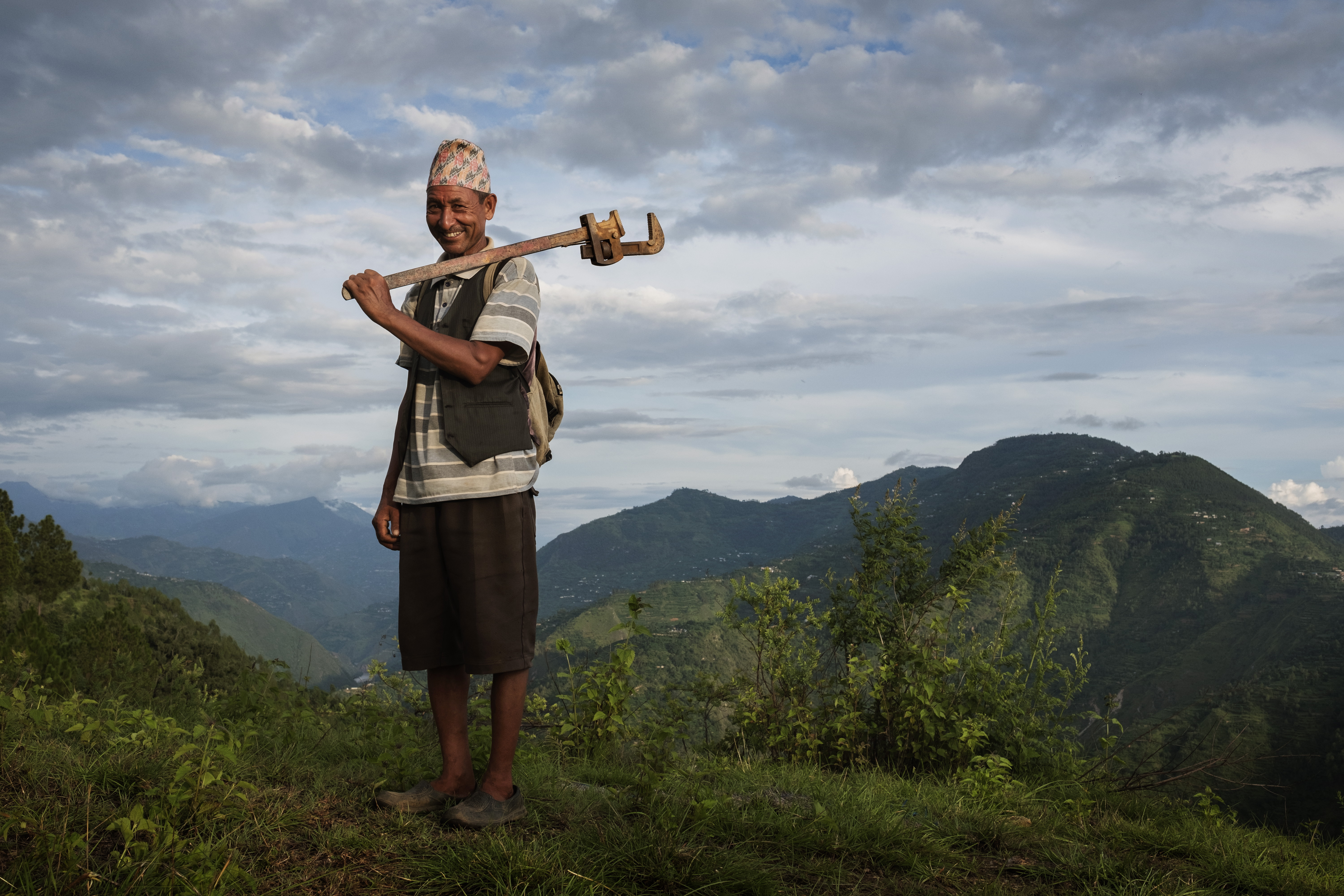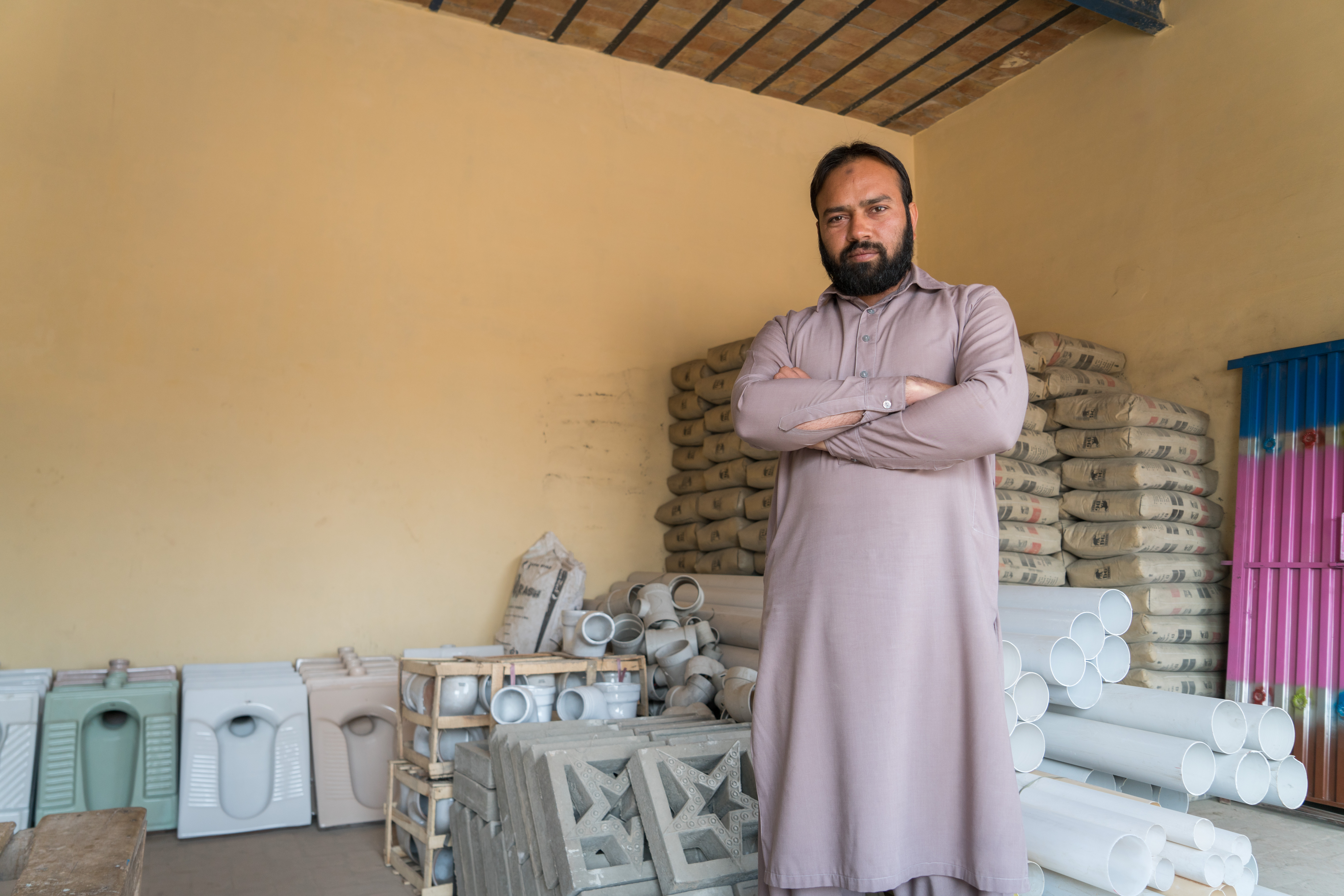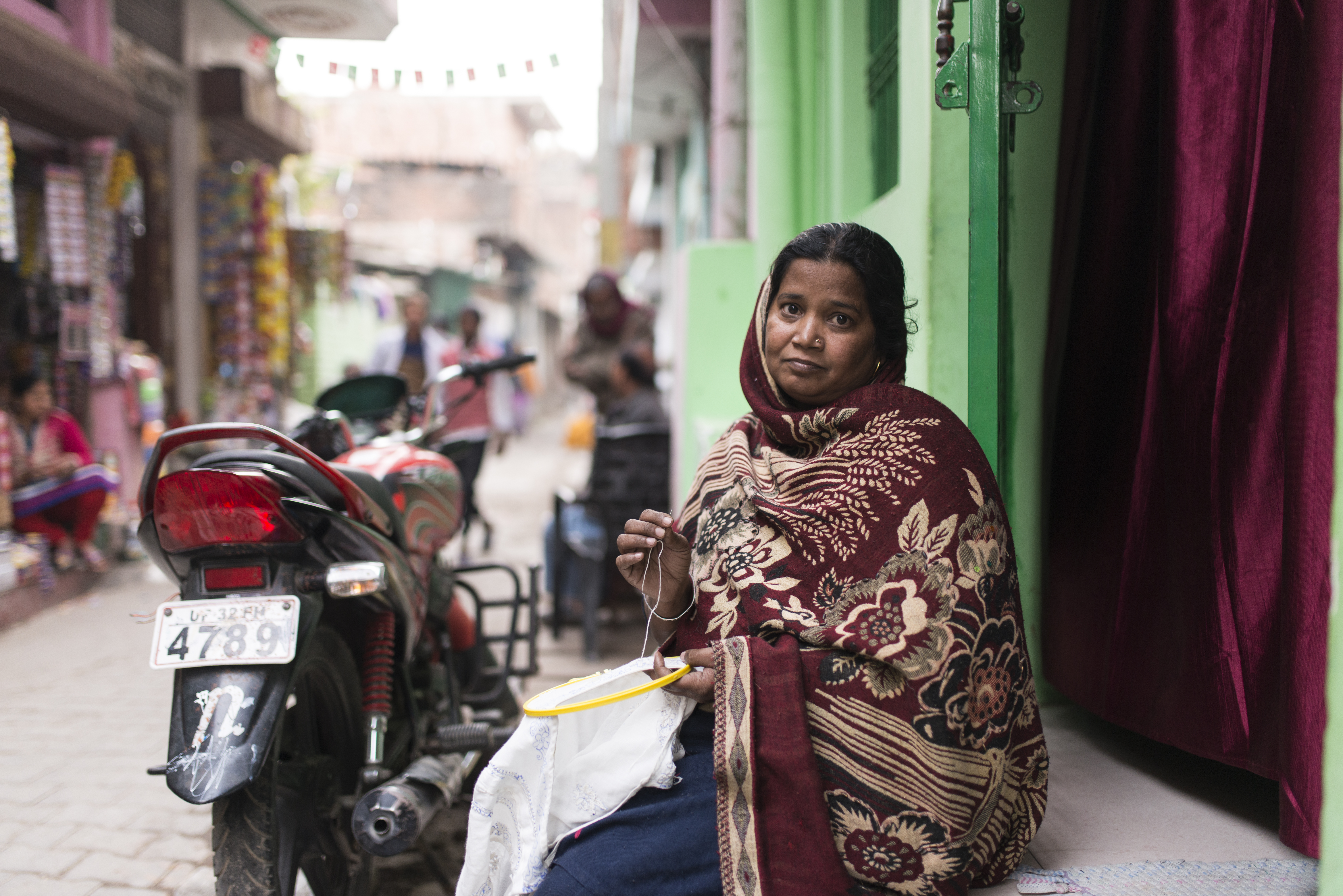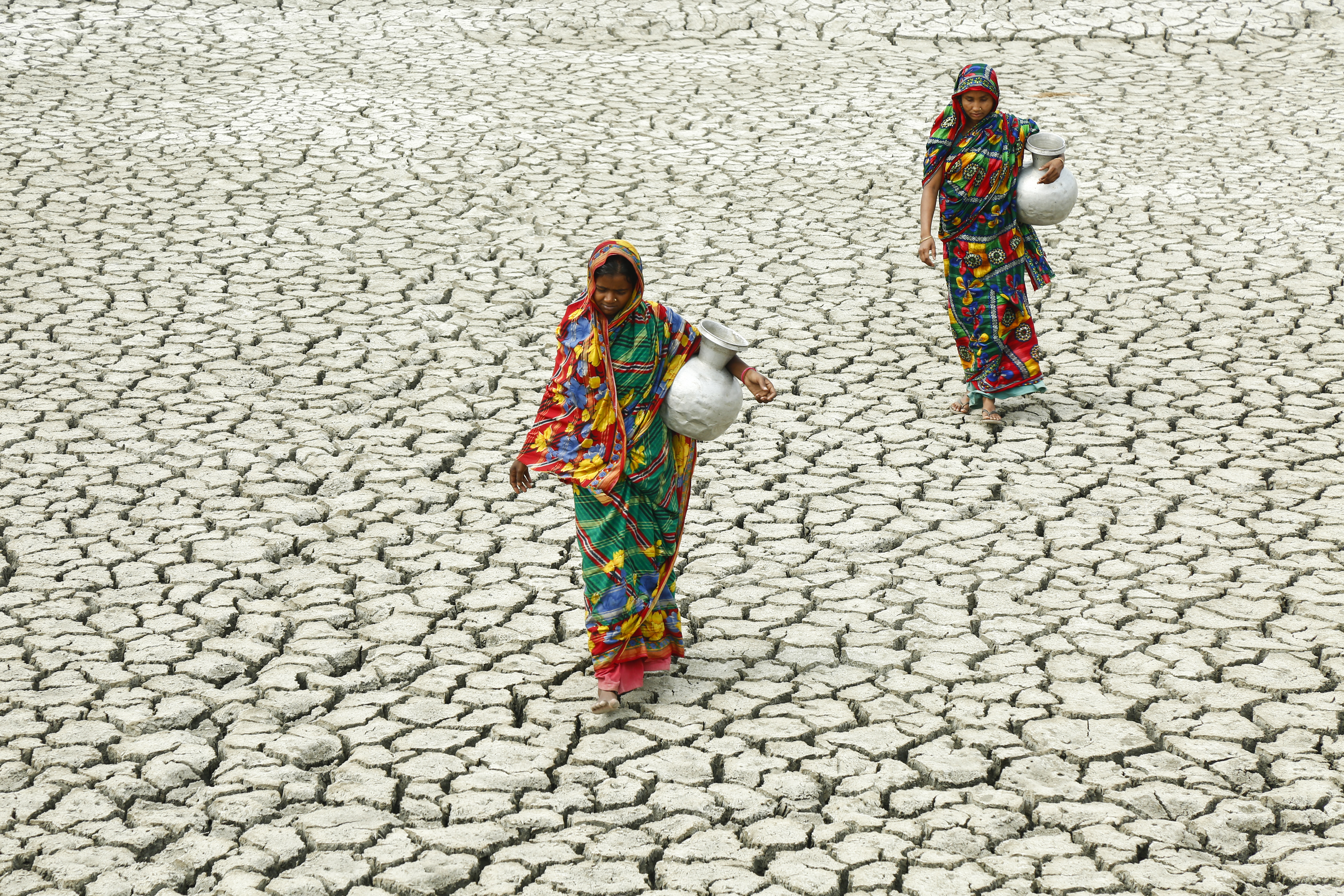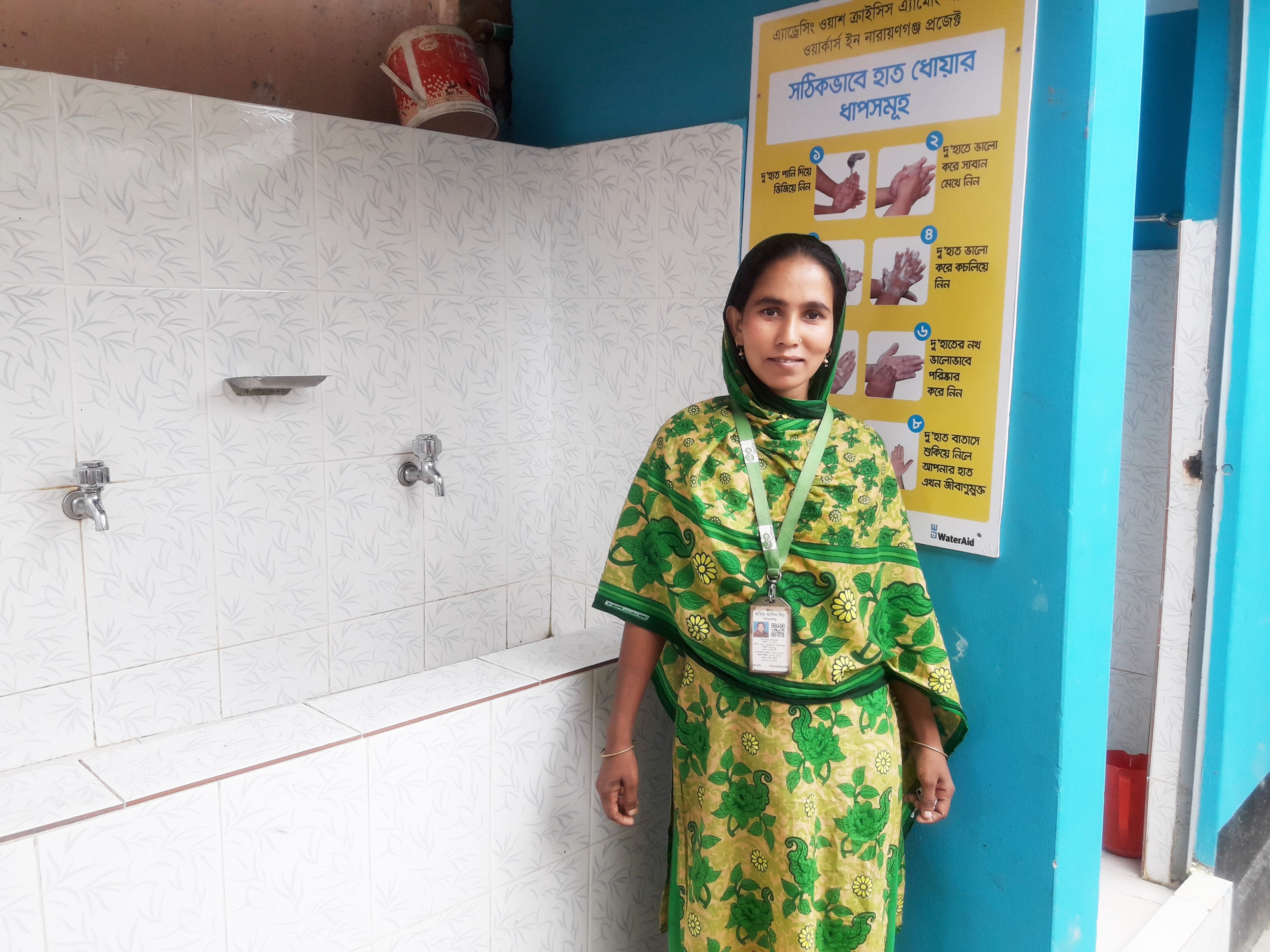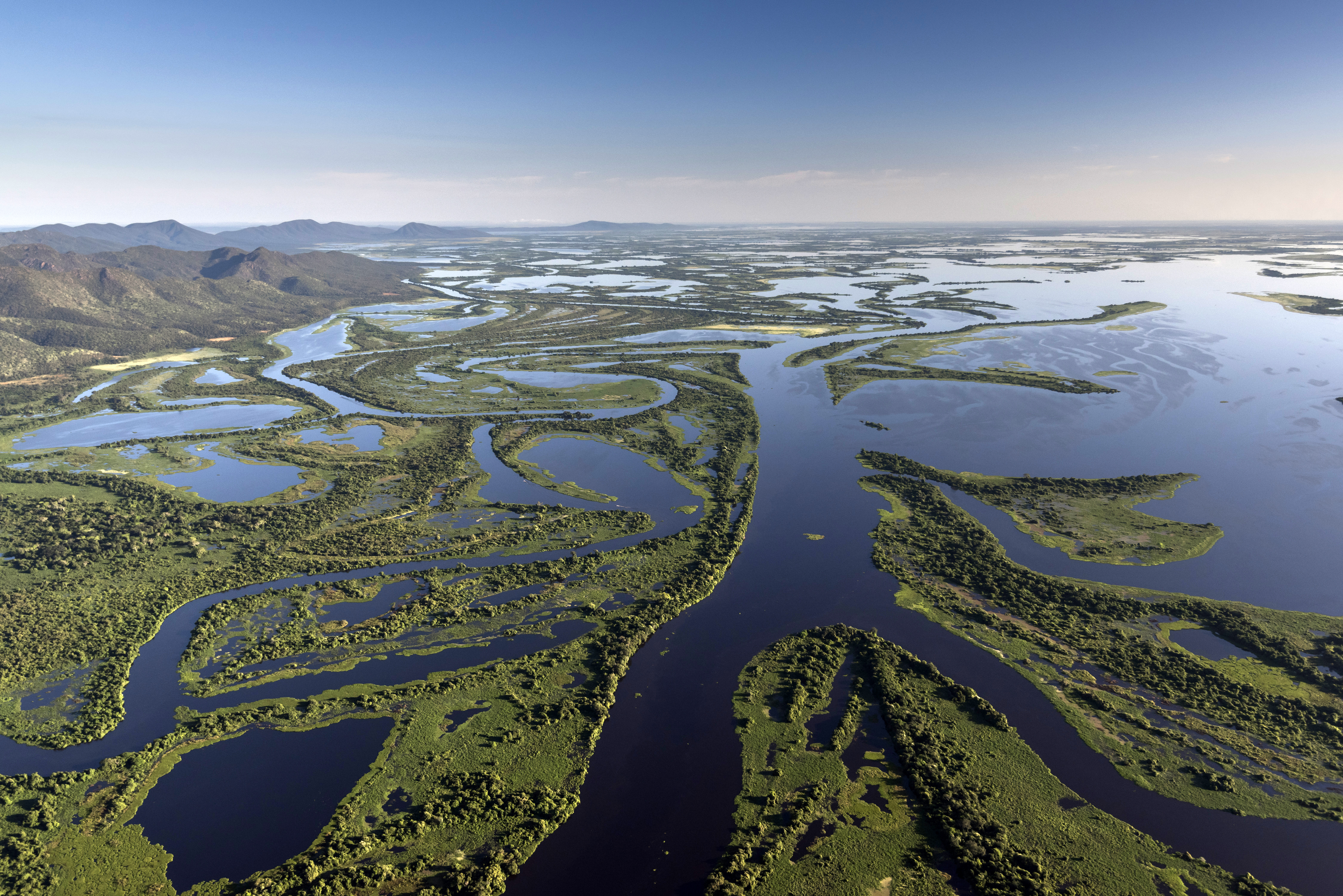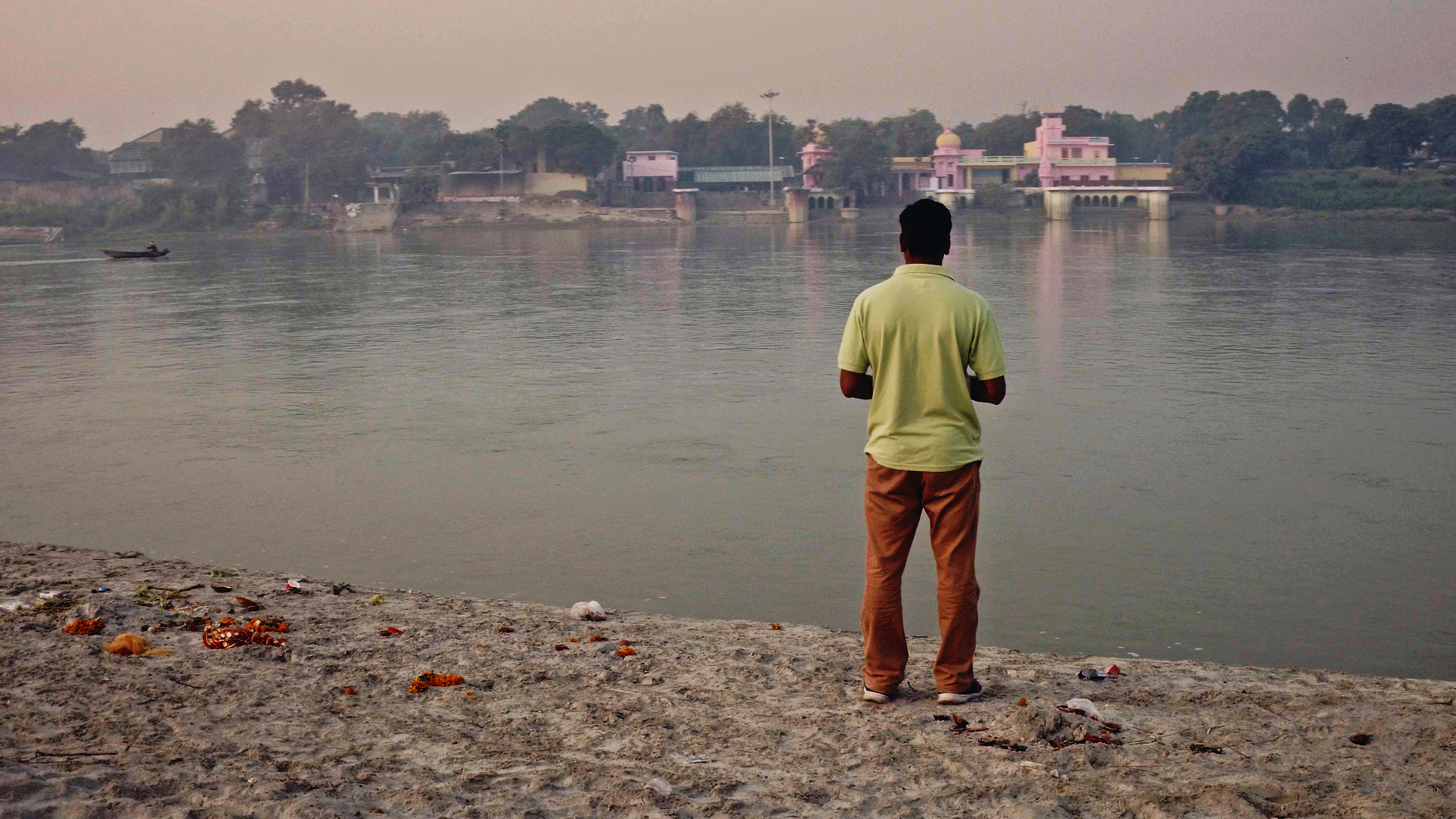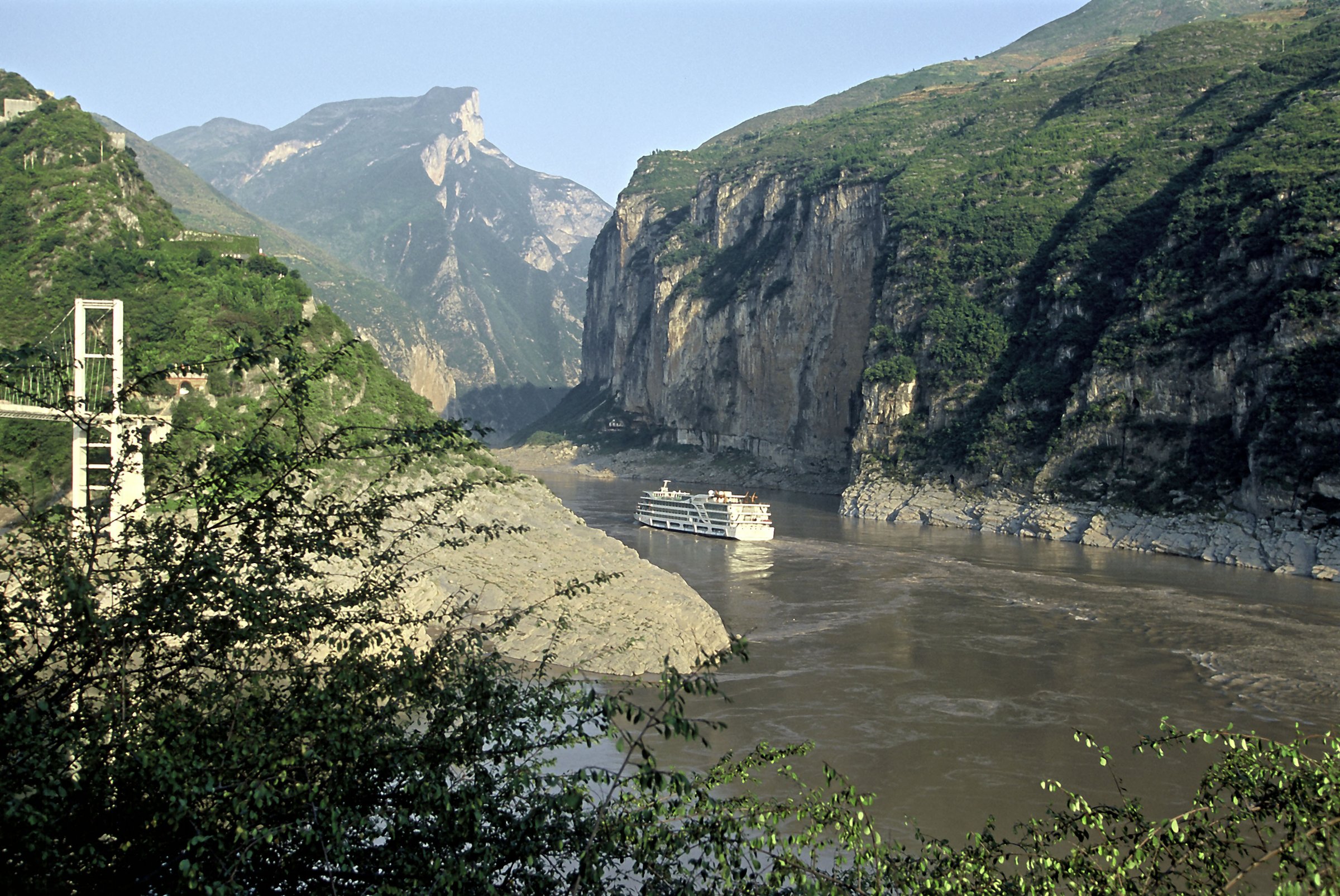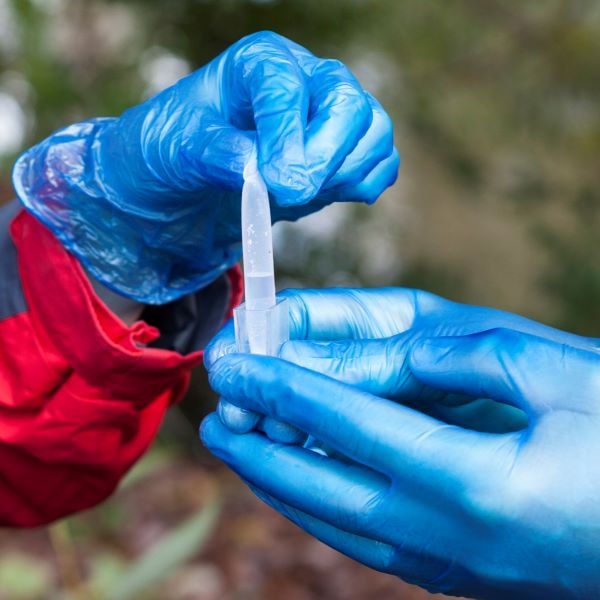Nancy Rono, farmer and single mother of three boys, is part of a scheme, implemented by WWF Kenya and supported by the HSBC Water Programme, to provide economic incentives to reduce the impacts farming has on the Mara River, Kenya. Since 2012, WWF Kenya, supported by the HSBC Water Programme, has been working with local farmers, communities and businesses along the Mara River on an environmental initiative. Together we’ve taken action to protect the river and the vital resource it provides. 395km of river has been secured, protecting water quality and ensuring local farmers, businesses and communities have access to clean water. Nancy is one of the 127,118 local farmers and fisherman across the world we've helped train in sustainable farming methods, supporting livelihoods and improving water quality.
The Mara River flows from Kenya to Tanzania and sustains some of Africa’s best known nature reserves: the Serengeti and Maasai Mara. The river suffers from overabstraction but also from pollution coming from urban areas and tourism infrastructure.
Poor farming practices are also a big culprit. The headwater Mau forests have historically enhanced rainwater infiltration, stabilised soils, and regulated flow. However, decades of encroachment, deforestation and poor agricultural practices have exposed soils. The farms are steep and when it rains, the fertile topsoil is washed into the rivers, choking them with sediment.
The sediment-laden waters are not only a problem for fish and aquatic species, but also cause problems for those using the water downstream for drinking and industrial processes. Soil erosion is also a problem for the farms themselves. Soil erosion threatens farmers’ incomes and food security by reducing the availability of fertile soil in which to grow crops.
To tackle this issue, WWF has been working in collaboration with community-based Water Resources Users Associations to raise awareness about the need to protect riparian land and demonstrate how better farming practices can reduce soil erosion, increase fertility and ultimately increase income. WWF is also trying to instigate a Payments for Ecosystem Services (PES) scheme, whereby downstream private water users would contribute to the expansion and maintenance of improved farming practices upstream in return for improved river quality and flow.
